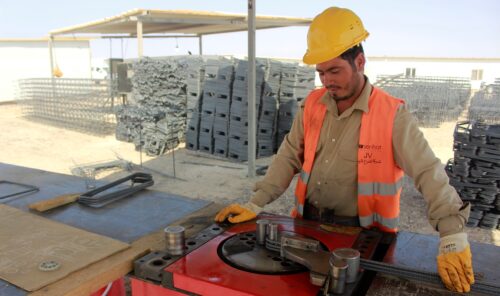New Bidding Procedure in Iraq Speeds Up Development Undertakings

A REVISED BIDDING PROCESS AND SIMPLIFIED BIDDING DOCUMENTS FAST-TRACK DEVELOPMENT PROJECTS IN IRAQ
Government bidding is inherently a complex undertaking. In Iraq, this complexity was more pronounced because of the ambiguous and unwieldy bidding process. No matter the size of the procurement, be they multi-million-dollar construction projects or drinking water stations, the effort was the same: massive. Moreover, the evaluation criteria were hazy and easy to manipulate, with the lowest price becoming the deciding criterion for winning.
Siham Kadhim Jabir, Head of the Tenders and Contracts Department of Iraq’s Ministry of Planning, said: “Previously, there were no bidding documents, just a set of regulations. The evaluators assign scores based on their own interpretation because the criteria were not clearly explained.”
In 2018, IGPA/Takamul introduced two kinds of Standard Bidding Documents (SBD)—one for procurements under $2.5 million and one for procurements for non-consulting services. The Ministry of Planning of both the federal government and the Kurdistan Regional Government adopted the SBDs.
Aside from introducing new procedures, IGPA/Takamul also shortened the the timeframe of each stage of the process. Previously, procurement analysis and preparation of bidding documents alone took from three to six months. This was cut to no more than 30 days, and the opening of bids should be done within three days from the deadline of submission. Since then, the SBDs have become the fundamental document for government procurements. From October 2019 through March 2020, 49 projects valued at $127 million have been awarded using the SBD.
“The SBD facilitated the work for both the bidder and the procurement officers. It introduced a clear set of evaluation criteria, removed bureaucracy, and allowed small but qualified businesses to have a fair chance of winning,” Ms. Jabir said. “Several projects that were awarded using the SBD have been completed on time and have complied with the quality standard specified in the bid,” she added.
“After trying many times in the past, I was finally able to win a construction project with the government. I am so happy that the government bidding was changed for the better!” a grateful Omaid exclaimed.

